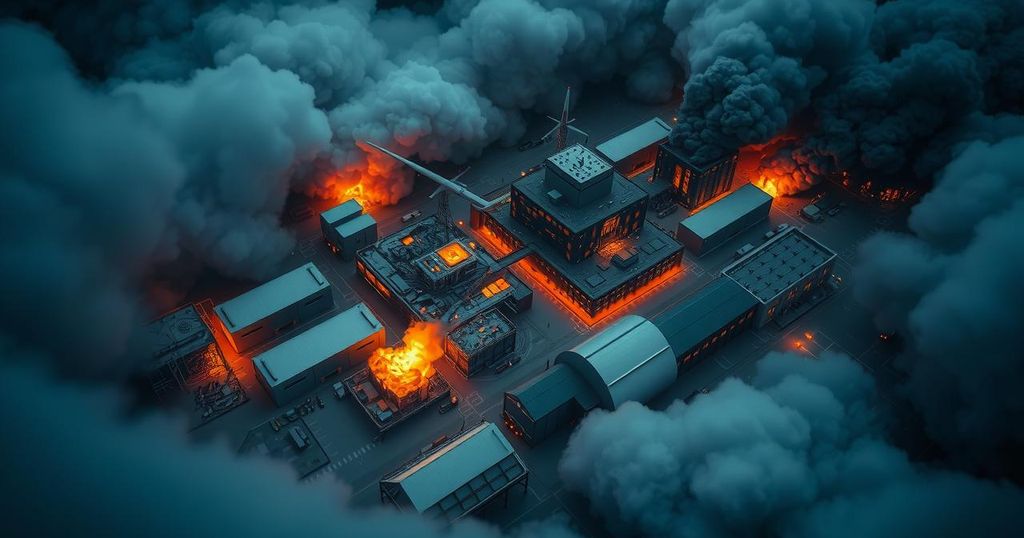World news
” TRUMP, ALEX BRANDON, AP, ASIA, BRENDAN SMIALOWSKI, DEFENSE, DICK SCHOOF, DONALD TRUMP, EUROPE, HAGUE, IRAN, MARCO RUBIO, MARK RUTTE, MEDIA, MEDIA CRITICISM, MINISTRY, NATIONAL SECURITY, NATO, NETHERLANDS, NORTH AMERICA, PETE HEGSETH, POLITICS, TEHRAN, THE HAGUE, TRUMP, TRUMP ADMINISTRATION, U. S, UNITED STATES, WHITE HOUSE
Lena Nguyen
0 Comments
Trump Grapples With Media After Airstrikes on Iran’s Nuclear Program
President Trump is defending U.S. airstrikes on Iran’s nuclear program against media reports suggesting limited impact. He insists on the effectiveness of the strikes while asserting that U.S. and Iranian officials will soon talk, potentially paving the way for peace. As debates about intelligence assessments unfold, the ramifications for U.S.-Iran relations remain significant.
President Donald Trump continues to challenge U.S. media outlets regarding their reports on the recent airstrikes targeting Iran’s nuclear efforts. Following a set of U.S. bombings, he insists that these attacks resulted in a substantial setback for Iran’s nuclear program. Trump claims that discussions between U.S. and Iranian officials are set to take place next week, fostering cautious optimism for peace, despite Iran’s firm stance on maintaining its nuclear ambitions.
At a NATO summit in The Hague, Trump disputed an early intelligence assessment suggesting that the strikes inflicted only marginal damage. He emphasized that U.S. intelligence did not capture the full impact of the strikes and reinforced his assertions that the bombings delivered a decisive blow to Iranian facilities. “This was a devastating attack, and it knocked them for a loop,” Trump stated, promoting his narrative with a planned press conference featuring military officials.
The NATO meeting was predominantly marked by discussions of European security, yet Trump’s claims regarding Iran dominated proceedings. The White House pointed to an Israeli statement asserting that U.S. strikes delayed Iran’s nuclear capabilities significantly longer than U.S. intelligence assessments reported. Nevertheless, this assertion fell short of Trump’s extreme claims and did not eliminate concerns over the potential continuation of Iran’s nuclear program.
Secretary of State Marco Rubio remarked in an interview that Iran is now “much further away from a nuclear weapon today than they were before the president took this bold action.” However, assessing the true impact of the strikes is challenging, especially so soon after the event, leading to various conflicting opinions that might influence how voters perceive Trump’s risky military decision.
Experts in nonproliferation have expressed skepticism about Trump’s claims. Jeffrey Lewis suggested that Trump’s contradictory positioning on the situation raises questions about the actual damage inflicted. Trump insists the strikes were definitive but also claims that it is too early to accurately assess their effects. Meanwhile, Trump expressed his discontent with media portrayals, referring to them as “Fake News” and criticized reports as disrespectful to the military personnel involved.
Compounding the issue, Trump’s administration is now considering adjusting its approach to sharing classified intelligence after leaks regarding assessments of the airstrikes. This move has raised concerns among some congressional members, who feel they might be kept in the dark about military operations and intelligence findings.
The debate around the strikes persists, particularly concerning whether enriched uranium was evacuated from Iranian facilities prior to the attacks. Trump is confident that his administration’s actions executed swiftly thwarted any attempts to relocate such material. The implications of these airstrikes extend far beyond military tactics, with potential diplomatic repercussions that may shape the future of U.S.-Iran relations and impact broad geopolitical landscapes.
In summary, President Trump’s assertion that the U.S. strikes on Iran were highly effective stands in stark contrast to early intelligence reports suggesting otherwise. Amid growing tensions and complicated diplomatic channels, the administration’s narrative is being scrutinized — not only by media but also by military experts and politicians. As discussions between U.S. and Iranian officials loom, the unfolding situation remains fluid, with potential ramifications for both national security and international relations.
In summary, President Trump’s assertions regarding the effectiveness of U.S. strikes against Iran’s nuclear facilities are contentious and face significant scrutiny. While he claims a massive setback for Iran, intelligence assessments suggest limited impact. Moving forward, the diplomatic stakes are high as the U.S. seeks to navigate the aftermath of its military decision, which may affect both regional stability and domestic political perceptions.
Original Source: apnews.com




Post Comment